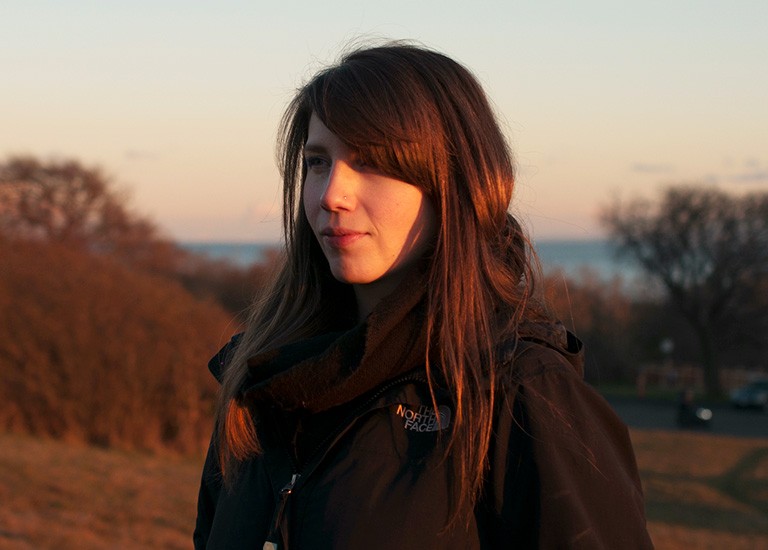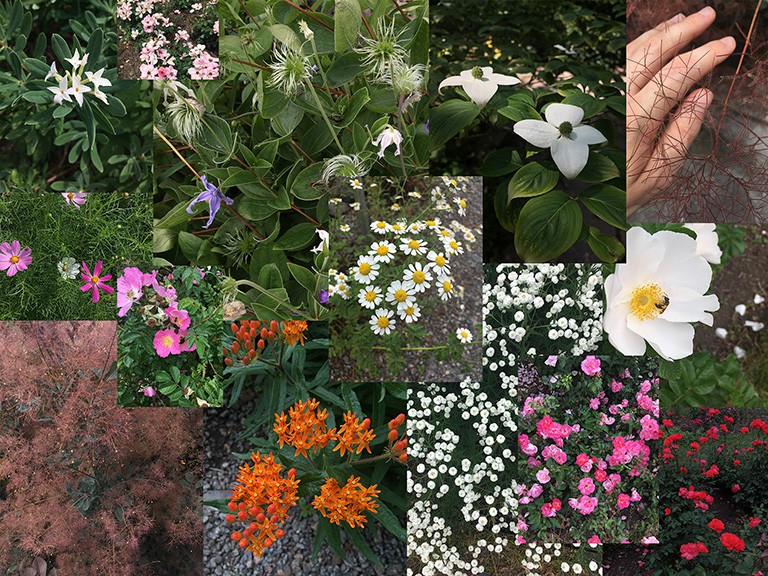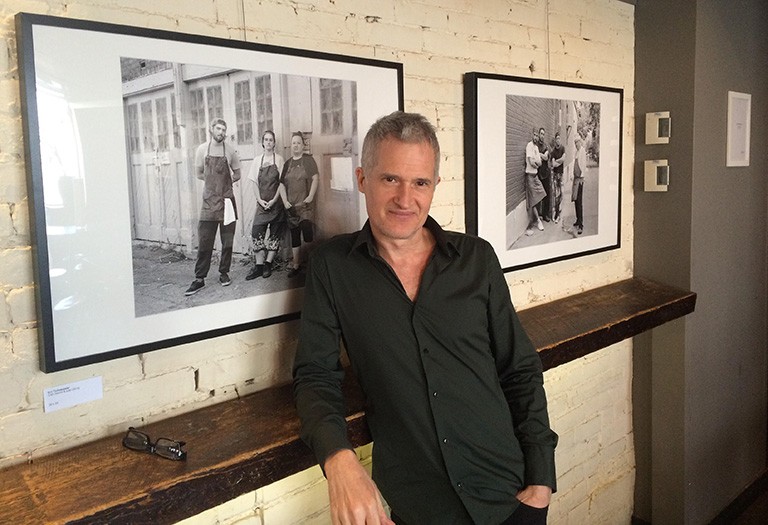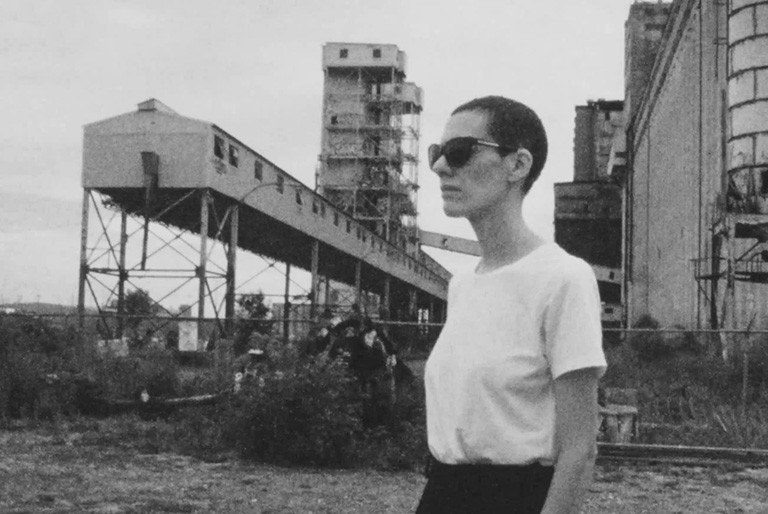Concordia MFA candidates find community through an adapted summer course
 Megan Stein: “This course was a soft place to fall back to when everything else came undone.” | Photo: Caylee Stein
Megan Stein: “This course was a soft place to fall back to when everything else came undone.” | Photo: Caylee Stein
Every summer, between their first and second academic year, master’s students in Concordia’s Department of Studio Arts are required to complete a three-credit course called Directed Studio Practice (DISP 615).
The goal of the course is to expose MFA candidates to alternative modes of making art and allow them to delve deeper into their research and keep working in their studios over the summer. And, despite the COVID-19 pandemic that posed unexpected challenges for the students and instructors, it’s also a critical moment to build community among peers.
Although many students were apprehensive about the shift to remote learning at the end of the winter term, Aaron McIntosh, one of the instructors of the direct practice course, describes how they collectively overcame that hesitation in the summer term.
“We actually turned it around pretty quickly for the better,” says McIntosh, associate professor of studio arts.
In graduate school, where fostering connections and networking is so important, he found the virtual platform to work well. “It’s not as alienating as I thought it would be.”
 Untitled (digital photo collage), by Megan Stein, 2020. | Courtesy of Megan Stein
Untitled (digital photo collage), by Megan Stein, 2020. | Courtesy of Megan Stein
‘Lots of students really got so much from the online summer class’
Erika Adams, studio arts graduate program director and assistant professor of print media, encouraged wary students to continue with their program and take the summer course.
“I was very pleased to hear that there were lots of students who really got so much from the online summer class,” Adams says. “They came up with creative solutions around not being able to go to their studios, working with different materials, thinking about new ideas and applying themselves in other ways.”
From April until the end of August, students met on Zoom for project proposals, feedback sessions, peer-to-peer interviews, final presentations and critiques.
“Online is not the end of the world, especially for graduate students,” McIntosh adds. “At that level in your career, it is mostly about your ideas and professional connections. It’s not so much about your technical comprehension of something.”
 Eric Tschaeppeler in front of his “Kitchen Staff Mile-End” series show. | Photo by Bowen Stead
Eric Tschaeppeler in front of his “Kitchen Staff Mile-End” series show. | Photo by Bowen Stead
‘A soft place to fall back to when everything else came undone’
After learning about each other’s practices in the first week of DISP 615, students selected a classmate to interview. Over the summer, they spoke with one another about their background, art practice and current summer project. They then shared the interviews with the rest of the class in the final two weeks.
McIntosh asked students to create interviews that were visually appealing, as if they appeared in an art magazine.
The final projects can be found online through the Department of Studio Arts.
Eric Tschaeppeler, an MFA student in the Photography program, believes that DISP 615 was one of the best courses he could take at this point in the pandemic and in the program.
“The interview project gave us the opportunity to go deeper with another artist and ourselves. We asked questions about motivation, method and ambition in a way that was quite free stylistically.”
Megan Stein, a printmaking MFA candidate, agrees. “Being in this course was a soft place to fall back to when everything else came undone.”
Stein worked with colleague Natasha Lavdovsky for her peer interview. “This interview project gave me the opportunity to play with visual design. I enjoyed the process of editing and formatting our conversation into a spread of pages with a gently blended background of colours inspired by Natasha’s being.”
‘New solutions to intellectual and academic problems’
With the summer course now over, Adams reflects on the positive outcomes.
“Sometimes in a graduate program it’s easy to find a way of working that you feel comfortable with. The hard part and best part is being pushed a little outside your comfort zone to find new solutions to intellectual and academic problems.”
As an instructor teaching the course for the first time, McIntosh found the experience very rewarding.
“It was a lovely, rather intimate way to become acquainted with our grad programs and the kind of students that matriculate through them. They’re a really smart, kind, generous group of students.”
Stein hopes to hold on to the connections she made over the summer.
“I also hope that Concordia practices patience and kindness, especially in terms of staff and students’ needs, ways of learning and the endless variety of barriers that can potentially arise during the year.”
 Screen shot from Eric Tschaeppeler’s super 8 film and sound project.
Screen shot from Eric Tschaeppeler’s super 8 film and sound project.
‘Amazingly, returning to campus has been pretty smooth’
Adams and the whole Department of Studio Arts also spent the summer preparing for the fall term.
MFA students started to have access to campus again in July. Those with studios began with one-time access, and soon after they could apply for recurring visits. By August, students with studios on campus were able to use them regularly.
“They’re working with each other to make schedules,” says Adams of the students who are now free to access their workspaces.
Now, as MFA students have entered the new fall term, key facilities such as the core technical centres, fabrication shops and the Centre for Digital Arts are also open.
All MFA students are required to take the Environmental Health and Safety training relating to COVID-19 protocols. Incoming students also need to take the required Workplace Hazardous Materials Information System training online, a certificate that lasts for three years.
Adams and the rest of the administration organized orientation sessions for students with this information and how to proceed with all on-campus activities.
“It’s been slow to bring it back up to the pace we were at in March, but everyone’s been working very hard to make that happen,” Adams notes. “Amazingly, even though everything is online in the form of virtual appointments and workshops as well as for requesting materials, it has been pretty smooth.”
Read the profiles of the students in DISP 615: Daniel Crawford, Brandon Dalmer, Hadi Jamali, Étienne Lacelle, Tasha Lavdovsky, Stephen McLeod, Maddie McNeely, O. Kristina Pedersen, Rebecca Ramsey, Megan Stein, David Stewart, Eric Tschaeppeler and Ti Zhang.
Find out more about Concordia’s Department of Studio Arts.



